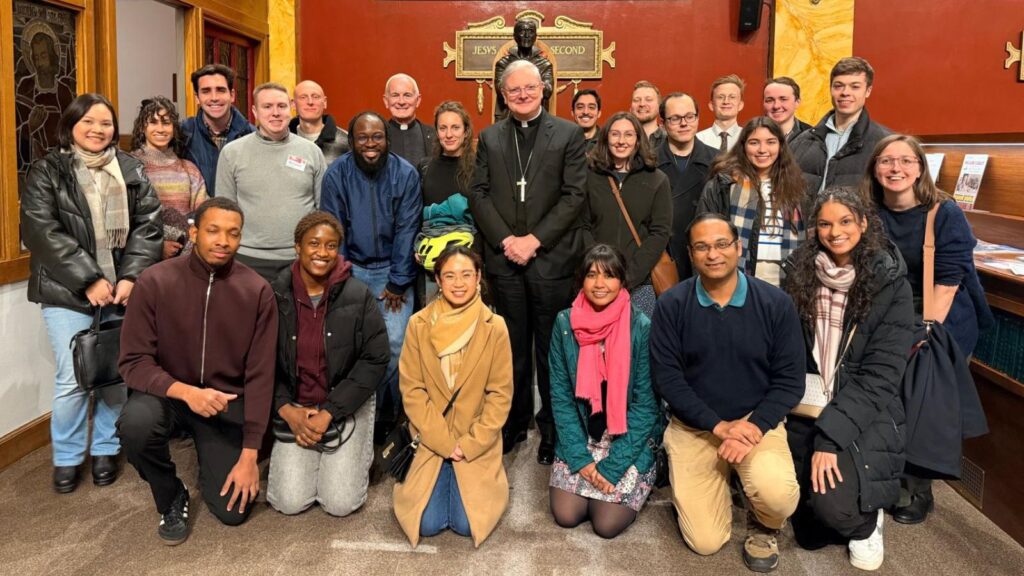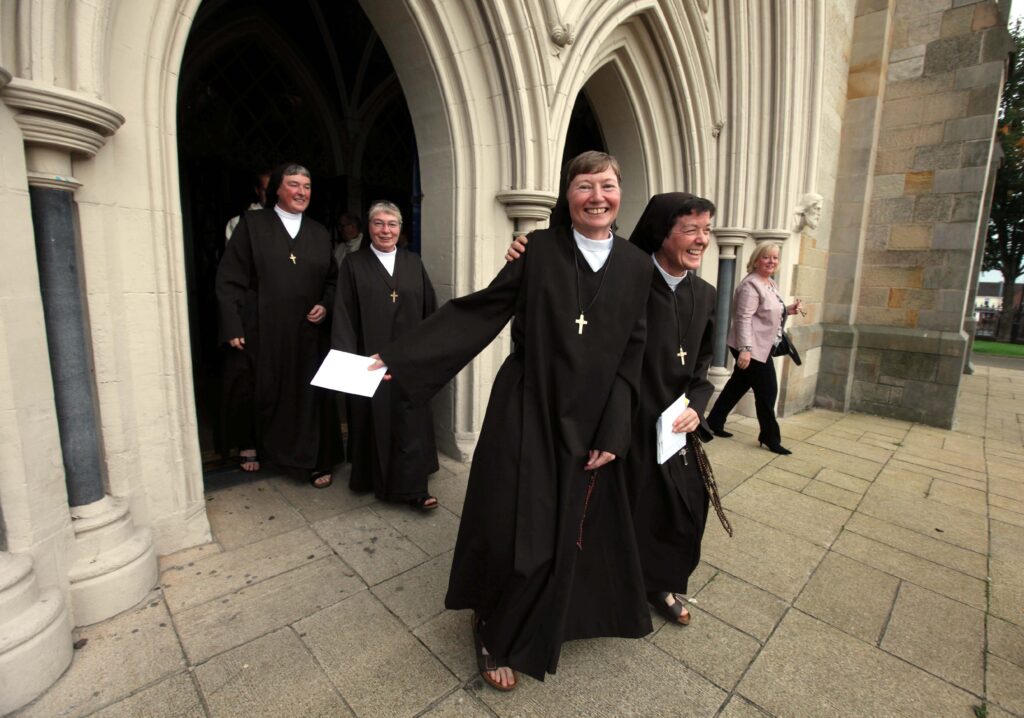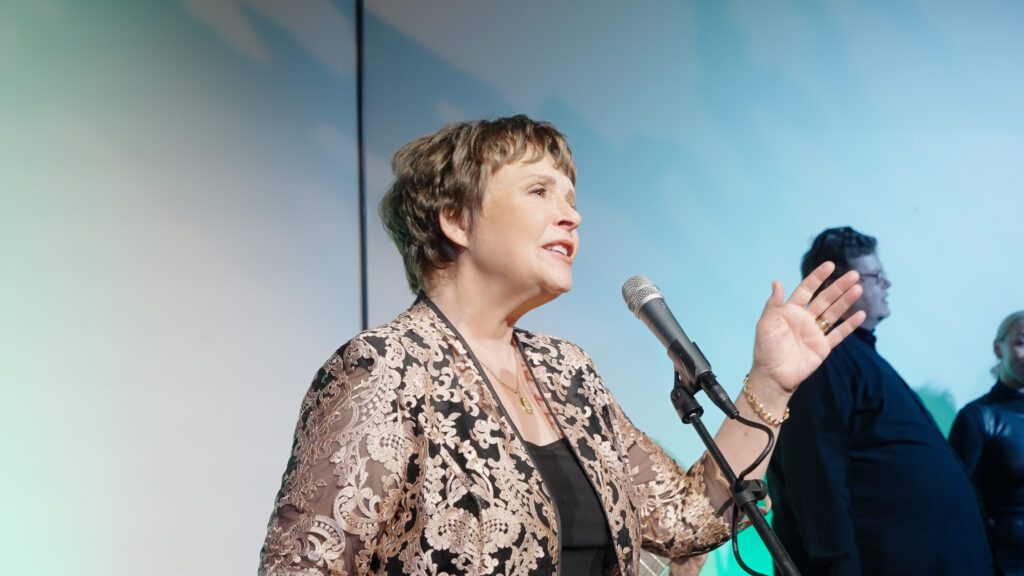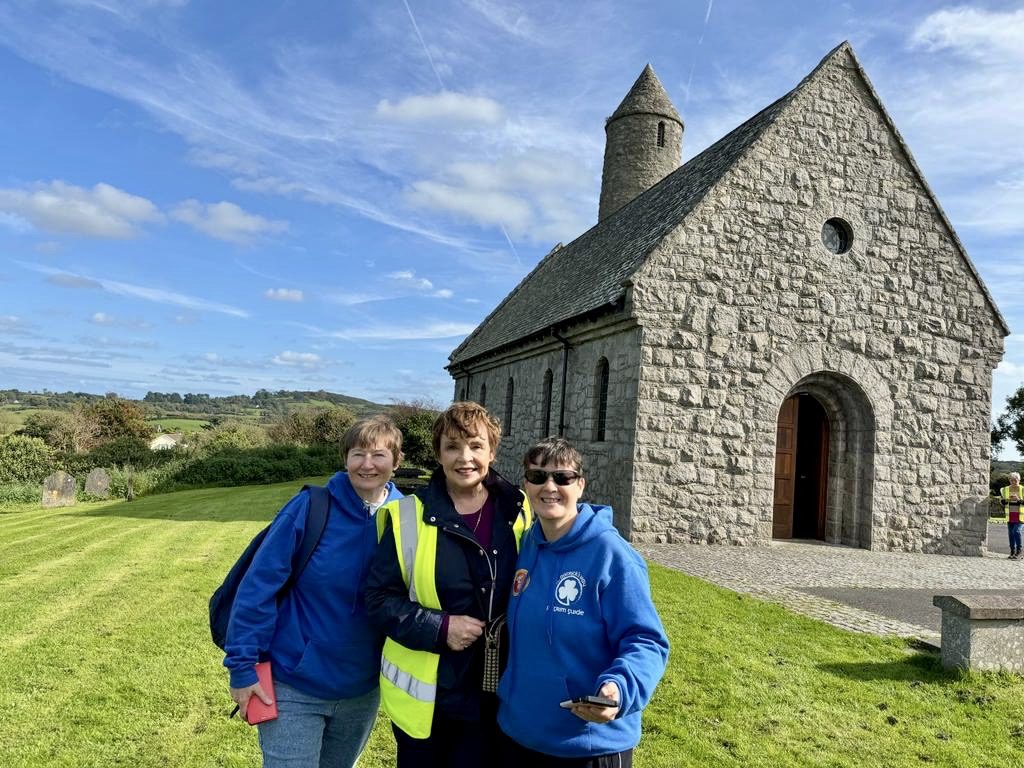At the annual Red Mass in Edinburgh, Archbishop Leo Cushley urged Scotland’s legal community to ensure that lawmaking remains grounded in reason, human nature and the common good.
Addressing judges, advocates and lawyers at St Mary’s Cathedral, he reflected on the enduring influence of philosophy on justice and society.
The Mass was also attended by Lord Pentland, newly appointed Lord President of the Court of Session and Scotland’s most senior judge.
Below is the full text of his homily.
Homily of Archbishop Leo Cushley of St Andrews & Edinburgh, Red Mass, St Mary’s Cathedral, Edinburgh 21 September 2025
My dear friends,
A renewed word of welcome to the Senators of the College of Justice, the Right Honourable Lord Pentland and his fellow judges Lord Doherty, Lady Carmichael, Lord Ericht, Lord Scott and Lady Ross.
We especially welcome the Right Honourable Lord Pentland, who earlier this year was appointed by His Majesty The King as Lord President of the Court of Session and Lord Justice General.
This means that he is the most senior judge in Scotland, and we are honoured to have him attend in his new role.
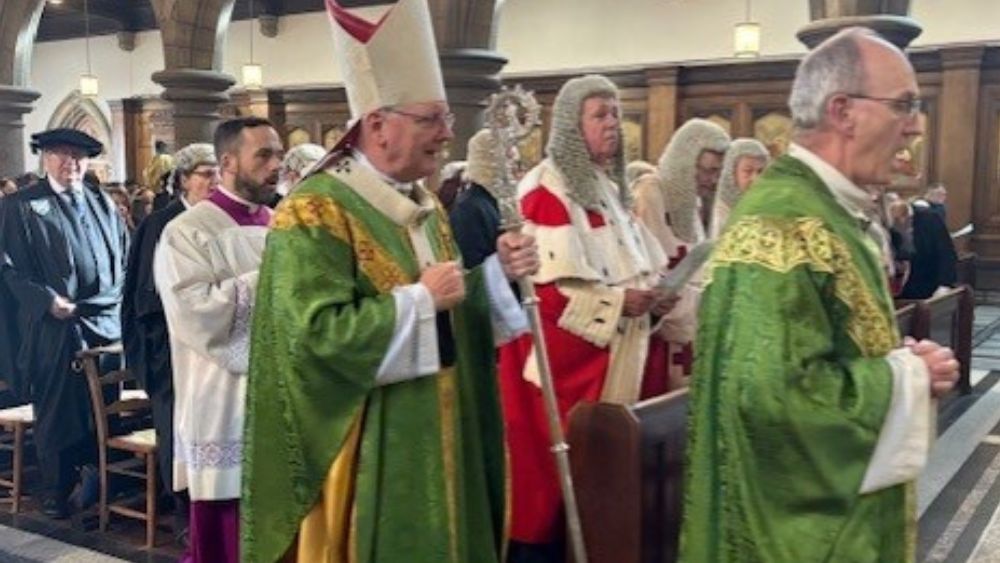
We wish you every success leading the judiciary in the very significant and important role of Lord President.
We are also joined by Sheriffs from across the country, as well as solicitors, advocates, King’s Counsel, and a range of others involved in the legal profession, along with their families.
We welcome representatives of the Law Society of Scotland, the Faculty of Advocates, the Society of Writers to His Majesty’s Signet, as well as representatives from local bar associations and law schools.
This year we also welcome judges and lawyers from the Franco British Lawyers’ Society, who have been in Edinburgh this week for a conference.
We especially welcome The Right Honourable Lord Justice McCloskey from Northern Ireland and the other delegates from Scotland, England, Northern Ireland, France and Guernsey.
I hope you have enjoyed your visit to Edinburgh and am pleased that so many of you have been able to extend your stay to be with us today.
***
Now, to change direction slightly, I don’t know how many of you here have studied philosophy.
It’s something that we as Catholic priests are obliged to study, sometimes to degree level, before we move on to theology.
So, as young men, we duly studied the stuff, but we were naturally impatient to move on from philosophy as quickly as possible, and actually had little patience with it, except as the obligatory gateway to studying the mystery of Christ, the Gospels, St Paul, St John, the Old Testament, canon law, the seven Sacraments, moral theology, and so on.
That was what we were in seminary for!
We were also told that philosophy was useful stuff, and that its history was a way to learn not so much what to think, but how to think, and we all agreed that, once we’d completed the degree, it had been a useful exercise.
And, well, it was.
But, as I’ve noticed in my priest friends as we get older, I have found myself returning more and more to philosophy, and really enjoying reading it again.
It may all sound a bit arcane, or a bit out there, but in recent years I’ve been looking again at epistemology and logic and ethics.
I’ve gone back to Plato and Aristotle. And I’ve done so, partly because I began to wonder a while ago if they had some of the answers that we here, today, in our society, search for and yet appear to lack - and, I’m happy to say, that I’m finding and learning a great deal that is old, but it’s also gold: it is still very relevant to everyone who lives in the western world today, and to us, the seemingly distant heirs of those who first asked the really big questions: why are we here?
What is the meaning of existence, of life? What ought we to do with the few days we have on this earth?
In a particular way, the people of first century Greece and Rome are our forebears in all of this.
They faced the dramatic political change from Republic to Empire; they faced very similar – eerily similar - questions to the ones that we face today about the human person and about society.
I don’t have a lot of time to deepen this, so this homily will only be like a brief advert for an epic movie – but I recommend highly that you think about going to see it.
So, the first thing I’d say is that we’re not much different from our forebears in the first century, the time of Jesus and Paul and Caligula and Nero.
They were made of the same stuff as us, they stood up in the same flesh and blood, and they were just as gifted, and intelligent, and concerned for their families, and their society and their future as any of us.
We shouldn’t dismiss them out of hand just because they didn’t have electricity, or iPads, or the internet.
Some of their science had a way to go, but their thought about the human person is as good and as valuable as anything our thinkers have to offer today.
In fact, I’d go further, and say that we have had no one around of the equivalent of Aristotle or Augustine for a very, very long time, in spite of air travel and nuclear weapons and all the rest.
And, while we wait for someone truly wise to come along again, we could do worse than to take a look at the greats whose thinking is as wise and useful and fresh as ever it was.
The second thing I would say is that you’ll notice how philosophy is not something you see on the street.
Today it’s found in dusty academic classrooms, and it is not much frequented or taken seriously. Not even in Parisian cafés.
If philosophy is about anything these days, it’s about epistemology and logic, that is, how we understand things, how we think, how we arrive at conclusions. Effort and money are poured into AI these days, but not into HI, human intelligence.
And yet if we go back to the first century, we see a very different picture.
Human intelligence is the benchmark. Philosophers are to be found everywhere, in the marketplace, in politics, in debates in Athens and Corinth and Rome, down the pub, in the street.
Free speech really is free, and ideas get a serious, full airing. All sorts of ideas. Sceptics, Cynics, Epicureans, Stoics, categories that we use to this day. The only cancelling is done by emperors who fear the truth about the human person.
But the point I want to make here is this. Philosophers weren’t on people’s radars to tell them about ideas. People sought out philosophers to help them know how to live.
Philosophers weren’t seen so much as thinkers; they were instead seen as healers.
They offered a sane, reasonable way to live.
They were healers of the mind and the soul.
Young men, but young women too, went to them for guidance on how to live a good life.
For us today, the good news is that we are just beginning to glimpse again, to rediscover the understanding of our human nature, as it given to us, and the use of reason to find a sane, and healthy, and humane way to live.
Elements of the Stoic approach in particular surely appealed to St Paul, as we begin to see again how he thought and taught in those categories.
Christianity and some strands of stoicism strongly echo each other.
And there is therefore a wonderful overlap between the thinkers – the philosophers, the healers of the age, and Christianity, as it emerges at the end of the first century.
Our laws, likewise, to this day, draw a great deal from this very period, and above all from what is reasonable: what it is reasonable to assert about the human person, what it is possible to deduce and apply, drawn from our human nature as it has been given to us, and consequently what will lead the individual and society more surely to a happy, wise, good way of living.
My dear friends of the legal profession, the laws then that you apply, must be adequate today, as always, to such a task.
If our laws do not stand up well to such a critique, then they need to be looked at again.
They must be reasonable, they must correspond to our human nature, they must set standards of behaviour that can be judged against such a balanced approach.
Again, I find myself talking somewhat over your heads to our legislators rather than to you who apply the law; but you have your role to play in this as well, not least because no one knows the law like you know the law.
You shape the debate about law.
Our society, and the west as a whole, needs constantly to take a fresh look at its legislation and to see if the laws we have, and the direction of travel, is one that is leading to us to reasonable laws, natural laws, humane laws, or if our present path is taking us off somewhere else.
What is characterised as progress is often merely change, and there is no guarantee that it will be change for the better.
Change does not lead instantly to progress; and we have ample proof of that all around us. So be aware when someone tells you that progress has been made in legislation; it may simply be change, and it may be ill-considered change at that.
In terms of law in our country today, what is reasonable from its Roman-Christian past is still in place; but the struggle for the true common good of the nation through sane, reasonable laws continues to be a concern for all of us, and for all people of good will.
Lords and Ladies, dear friends of the legal profession, as you go about your tasks in this new legal year, be assured of our prayers and our encouragement to you in your high calling on our behalf.
Continue to engage in the discussions around what makes for good law.
Strive to apply our imperfect lawmaking in the most reasonable, natural and human manner available.
And may the good Lord guide you and keep you all in the coming year.
Thank you for listening, and God bless you!

